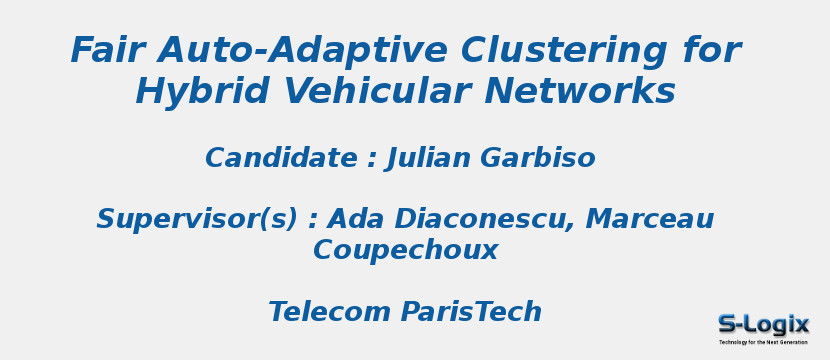Research Area: Vehicular Ad Hoc Networks
For the development of innovative Intelligent Transportation Systems applications, connected vehicles will frequently need to upload and download position-based information to and from servers. These vehicles will be equipped with different Radio Access Technologies (RAT), like cellular and vehicle-to-vehicle (V2V) technologies such as LTE and IEEE 802.11p respectively. Cellular networks can provide internet access almost anywhere, with QoS guarantees. However, accessing these networks has an economic cost.
In this thesis, a multi-hop clustering algorithm is proposed in the aim of reducing the cellular access costs by aggregating information and off-loading data in the V2V network, using the Cluster Head as a single gateway to the cellular network. For the example application of uploading aggregated Floating Car Data, simulation results show that this approach reduce cellular data consumption by more than 80% by reducing the typical redundancy of position-based data in a vehicular network. There is a threefold contribution: First, an approach that delegates the Cluster Head selection to the cellular base station in order to maximize the cluster size, thus maximizing aggregation. Secondly, a self-adaptation algorithm that dynamically changes the maximum number of hops, addressing the trade-off between cellular access reduction and V2V packet loss. Finally, the incorporation of a theory of distributive justice, for improving fairness over time regarding the distribution of the cost in which Cluster Heads have to incur, thus improving the proposal’s social acceptability. The proposed algorithms were tested via simulation, and the results show a significant reduction in cellular network usage, a successful adaptation of the number of hops to changes in the vehicular traffic density, and an improvement in fairness metrics, without affecting network performance.
Name of the Researcher: Julian Garbiso
Name of the Supervisor(s): Ada Diaconescu, Marceau Coupechoux
Year of Completion: 2017
University: Telecom ParisTech
Thesis Link: Home Page Url
